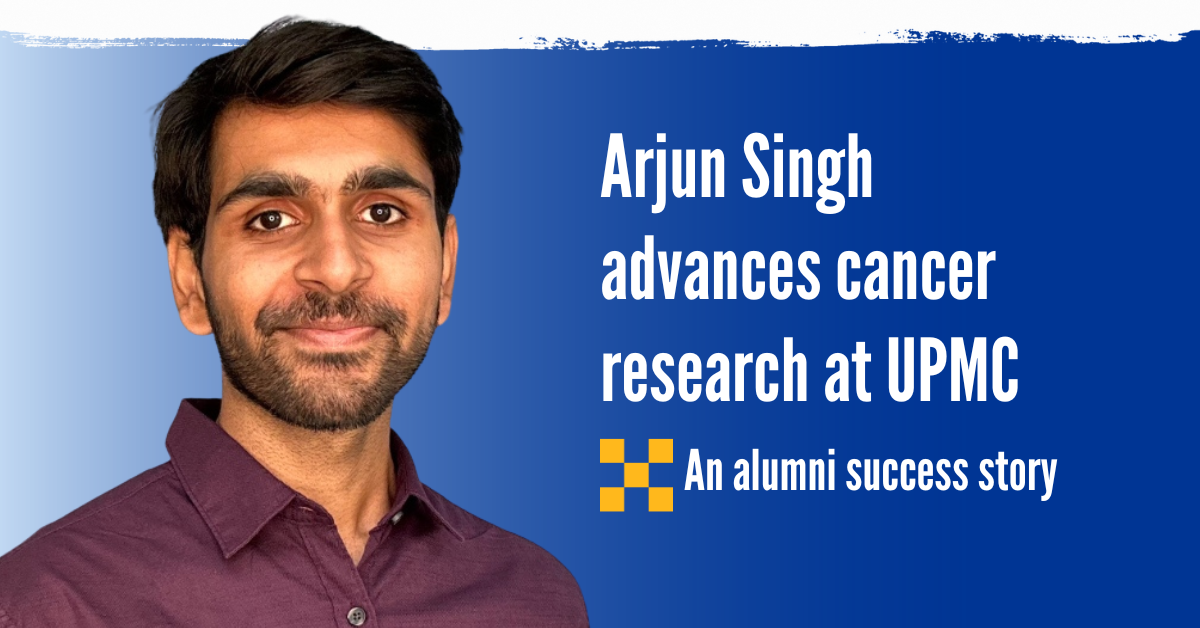When Arjun Singh was exploring graduate school programs, he knew he wanted a degree that combined his interests in biotechnology and computer science. This led him to the Computational Biomedicine and Biotechnology (CoBB) Master of Science program at the University of Pittsburgh.
Singh had developed an interest in computational biology as an undergraduate student at Netaji Subhas Institute of Technology. After graduation, he joined a research position at Indian Institute of Technology Roorkee, where he used computational tools to understand the impact of drugs on pancreatic beta cells. However, he soon realized he wanted to expand his knowledge of the emerging intersection of biotechnology and computational techniques.
After enrolling at Pitt, Singh gained valuable experience as an intern at UPMC Hillman Cancer Center. He worked independently on a project to analyze single-cell RNA sequencing patient datasets with the goal of predicting drug responses and classifying cancer types. He also presented this project at the Biomedical Graduate Student Association (BGSA) Symposium at Pitt. This internship helped him visualize a career path that could combine his computational skills with cancer biology.
“CoBB helped me to understand and take action with computer tools to dig deeper into the biology of the data, leading to more questions and insights. It also introduced me to cancer research,” Singh said.
Throughout the CoBB program, he developed a range of skills that he now uses daily in his role as a bioinformatics research specialist at UPMC Hillman Cancer Center Bioinformatics Core. His research focuses on cancer diagnostics, making detection easier for patients and improving treatment outcomes. He helps cancer research labs tackle complex biological problems by analyzing extensive datasets, using programming languages like R and Python—both of which he strengthened through his graduate coursework.
He shared that one of his favorite aspects of his role is the variety. “I like trying out new things on different data sets because I’m getting a new problem every time,” he said. “That’s my favorite part of the job.”
Among the many classes that left a mark on Singh, he recalls Cancer Biology and Therapeutics. In this class, he had the unique opportunity to learn from medical doctors and professors who were pioneering cancer solutions and making an impact on patient lives. The course not only helped him understand cancer from a biomedical perspective but also introduced him to the challenges he would face in the cancer research field.
As an international student, he also appreciated the support of department staff and faculty, who made him feel more at home.
“It felt like a family,” he said. “They supported me a lot when things seemed impossible to me.”

Singh envisions founding a company that develops tools for cancer research, which he hopes will positively influence the field. “I want my research to translate quickly from the lab to clinical practice, making a real impact on patients’ lives and ensuring that my passion leads to tangible outcomes,” he said.
Reflecting on his time in the Computational Biomedicine and Biotechnology master’s degree program, Singh advised new students to engage with professors and seek project collaborations. “There are opportunities to create projects, so take the projects seriously and create something that will help you out in your future,” he said.


